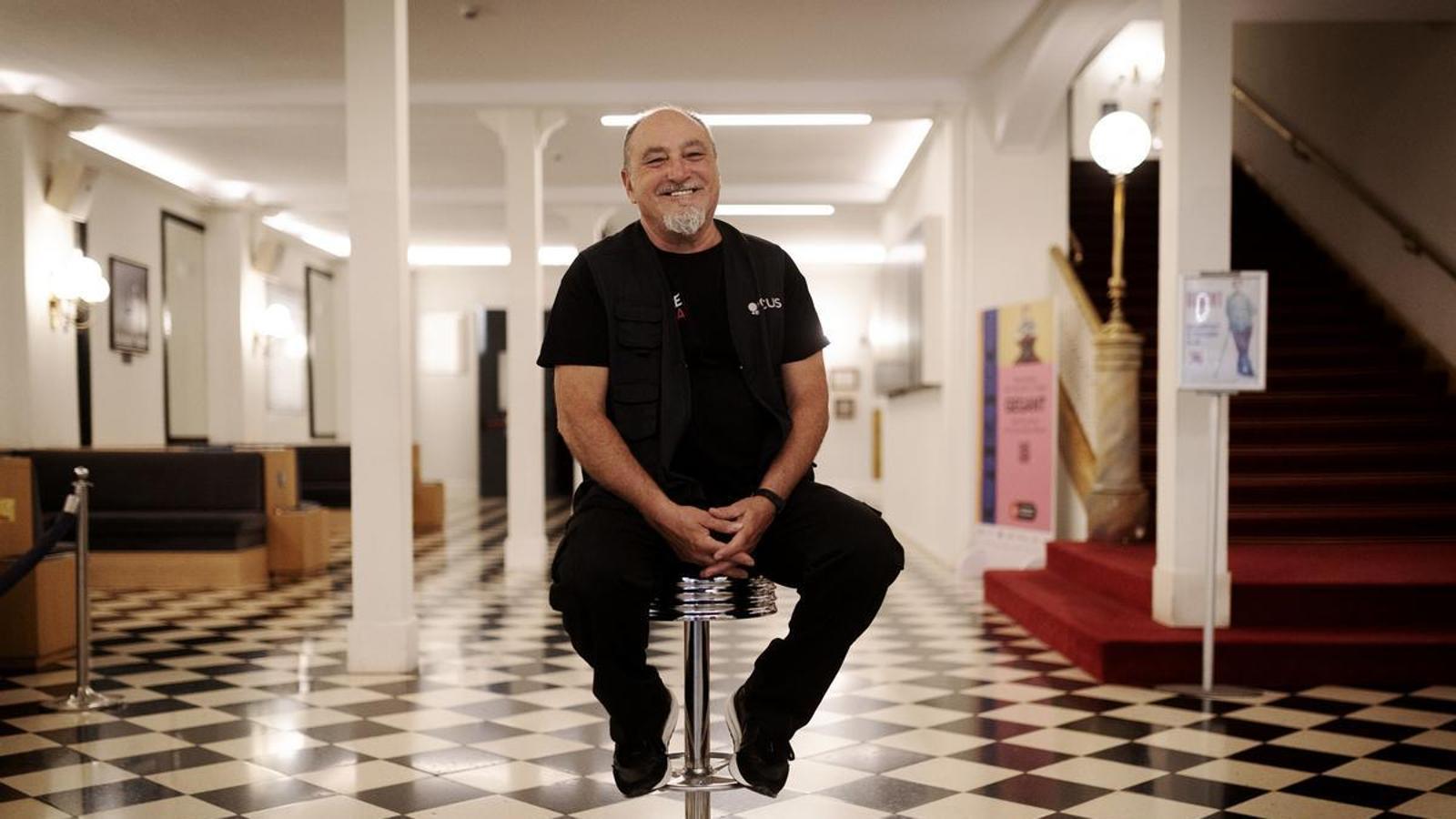"I've never seen Xirgu's ghost, but things happen here."
The historic head waiter at the Teatre Romea has been welcoming audiences for 42 years.


BarcelonaFor over forty years, he's been the first to arrive every evening at the Teatre Romea and the last to leave after the performance. He's the one who greets the audience at the door. "I'm the night watchman," he says, calmly. Juan Máñez (Hospitalet de Llobregat, 1963) joined the Romea in the 1980s because the theater's technical manager had seen him working at a stall his aunt had next to the theater, in the Mercat de la Boqueria. He dispatched and distributed sanitary products in hotels, restaurants, and furnished from the Raval neighborhood. Máñez was a bright teenager who had already classified the shoe store clerk who ended up becoming his wife.
"I've been working since I was nine years old. My stepfather was a master craftsman, and I helped him weld. They gave me 25 pesetas for each piece. Then I had a sister, and I had to take care of her. I didn't go to school very much," he recalls. He hadn't been to the theater either. Instead, fate led him to become one of the people who has seen the most theater in recent history: absolutely every show at the Romea since 1982.
"I think I was predestined for this theater," he says. Not only because he was born exactly one hundred years after its opening, but because of a bizarre story. It turns out his father had problems with alcohol, and he grew up with only his mother and stepfather. Years later, the man came to the Boqueria bus stop. "It's your father looking for you," her aunt told her. She went to see him at the Pere Mata Institute in Reus because she was curious about his paternal family: "I assure you, the best thing I've ever done is go meet my father," she says, her eyes closed. "He was a very good person. He loved my children very much." It was while looking at photographs of her father that she discovered he was a cousin of the manager of the Romea. "It was predestined," she repeats.
When she started, "the public was nothing like it is today; they came in fur coats and heels, like at the Liceu, and they had their boxes," she explains. Máñez, who had to memorize four phrases in Catalan because he didn't speak to her, would escort the audience to their seats: "If you would be so kind, please come this way," she would say, and hand them their ticket, holding out her hand to receive a tip. "I was so embarrassed! Sometimes they asked for every change. By bowing all the time, it was like he was a bullfighter," he adds. That's why he proposed to the director of the National Dramatic Center, Domènec Reixach, that he raise their salaries for the thousand pesetas they took in tips, and they made him head usher.
Regarding the legend that the ghost of Xirgu haunts the theater, he leaves the case open: "I've never seen her, but my daughter saw her in a nightmare when she was three years old. Many more things have happened here. One day we heard tricks at the bar door and no one was there. Another day the piano started to play. A little girl also saw the presence of a woman," and continues to detail strange situations. "I've had chills many days when I'm alone here; it's a very large house," he says.
His job is to make sure that the performance goes on as normal. He's had to call ambulances, especially for fainting spells. "We never stop the performance unless it's very serious. I've had to go looking for an actor on a motorcycle," he recalls, withholding the names of the most disastrous ones. If the performers haven't arrived an hour before, the search begins. "The actors love me very much, everyone. José Sacristán always leaves crying because he says we treat him very well. I welcome them as if it were my home. If they want broth or an omelet, it doesn't cost me anything," he explains, although the councilor is the one who must take care of the performers.
If we were to look for him at the Romea, we'd find him in row 17, seat 1: always at the far end so he's the last to enter and the first to leave.
